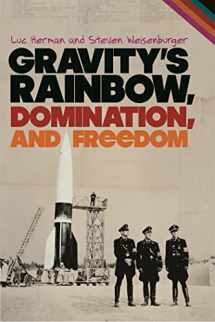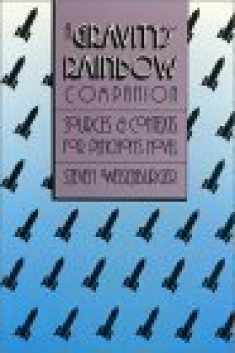
Gravity's Rainbow, Domination, and Freedom
Book details
Summary
Description
When published in 1973, Gravity’s Rainbow expanded our sense of what the novel could be. Pynchon’s extensive references to modern science, history, and culture challenged any reader, while his prose bent the rules for narrative art and his satirical practices taunted U.S. obscenity and pornography statutes. His writing thus enacts freedom even as the book’s great theme is domination: humanity’s diminished “chances for freedom” in a global military-industrial system birthed and set on its feet in World War II. Its symbol: the V-2 rocket.
“Gravity’s Rainbow,” Domination, and Freedom broadly situates Pynchon’s novel in “long sixties” history, revealing a fiction deeply of and about its time. Herman and Weisenburger put the novel’s abiding questions about freedom in context with sixties struggles against war, restricted speech rights, ethno-racial oppression, environmental degradation, and subtle new means of social and psychological control. They show the text’s close indebtedness to critiques of domination by key postwar thinkers such as Erich Fromm, Herbert Marcuse, and Hannah Arendt. They detail equally powerful ways that sixties countercultural practices―free-speech resistance played out in courts, campuses, city streets, and raucously satirical underground presswork―provide a clearer bearing on Pynchon’s own satirical practices and their implicit criticisms.
If the System has jacketed humanity in a total domination, may not a solitary individual still assert freedom? Or has the System captured all―even supposedly immune elites―in an irremediable dominion? Reading Pynchon’s main characters and storylines, this study realizes a darker Gravity’s Rainbow than critics have been willing to see.


We would LOVE it if you could help us and other readers by reviewing the book
Book review





